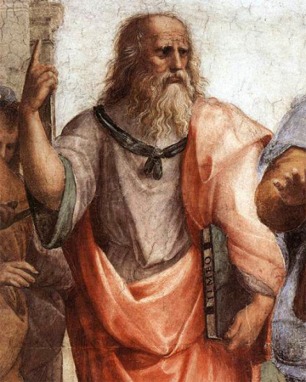
Hedonism – the idea that pleasure is the highest good – was certainly being discussed in ancient Greece by the end of the fifth century BC. It is outlined in Plato’s Protagoras, a dialogue in which Plato’s old teacher Socrates is debating the question of whether virtue can be taught. He’s talking to Protagoras, a leading Sophist and philosophical relativist.
‘So to live pleasurably is good, to live painfully bad?’ Socrates asks.
‘Yes, if one’s pleasure comes from what’s honourable,’ Protagoras replies.
‘Really? Protagoras, you surely don’t subscribe to the commonplace notion that some pleasures are bad, and some pains good?’
Socrates is being ironic here, because Protagoras was famous in his day for challenging conventional views of morality. Wrong-footed by Socrates (something that happens repeatedly in Plato’s dialogues), he has to admit that there are some pleasures that aren’t good, and some pains that aren’t bad. (Plato, Protagoras 351c) So a criterion for the good life – ‘what is honourable’ – has already been introduced. Pleasure is not the be-all and end-all of our existence.
In another of Plato’s dialogues, Philebus, Socrates asks his companion Protarchus whether, if he got the chance, he would choose to spend his whole life in the enjoyment of the greatest pleasures.
‘Of course I would.’
‘Would you want anything else out of life apart from perfect pleasure?’
‘Certainly not.’
‘Think about it for a minute. Wouldn’t you want wisdom and intelligence and foresight?’
‘Why should I? If I have pleasure, I have everything.’
‘But if you didn’t possess mind or memory or knowledge or true opinion, you wouldn’t know whether you were enjoying pleasure or not.’
‘I suppose not.’
‘And if you had no memory you wouldn’t even know that you had ever enjoyed pleasure in the past. … And if you had no foresight, you wouldn’t be able to look forward to enjoying it in the future. Your life wouldn’t be that of a man. It would be the life of an oyster.’
(Philebus 21b-c)
Here Plato assumes – rightly, I’m sure – that without consciousness we have no way of enjoying pleasure. He also seems to assume that consciousness immediately introduces other factors into the good life, factors that will lead us away from relying solely on pleasure. This assumption is more questionable.
So it seems that identifying pleasure as the highest good involved complex questions right from the start. Nearly a century later, when Epicurus appeared on the philosophical scene, he became the Greek world’s most celebrated hedonist. ‘When pleasure is present, as long as it is uninterrupted, there is no pain either in the body or the mind.’ (Principle Doctrines 3). But Epicurus’s view of pleasure, like most other people’s, is far from straightforward, since he believed that the limit of pleasure is reached in the removal of pain. If we’re hungry, we eat; but if we go on eating after we’ve dealt with our hunger, then we’ll only cause ourselves further pain. The answer for Epicurus lies in managing our desires so as to achieve maximum pleasure; and maximum pleasure means limited pleasure. This is a far cry from the modern use of the term ‘Epicurean’; and indeed in Epicurus’s own day his doctrines were misinterpreted, and seen as offering an ‘eat, drink and be merry’ message. ‘No, I’m not talking about fine food and fornication,’ he kept having to say. And I’m not talking about oysters either, he might have added, though he didn’t. So I would probably put Epicurus in the ‘desire theories’ category when it comes to ideas about well-being. More of this anon.
